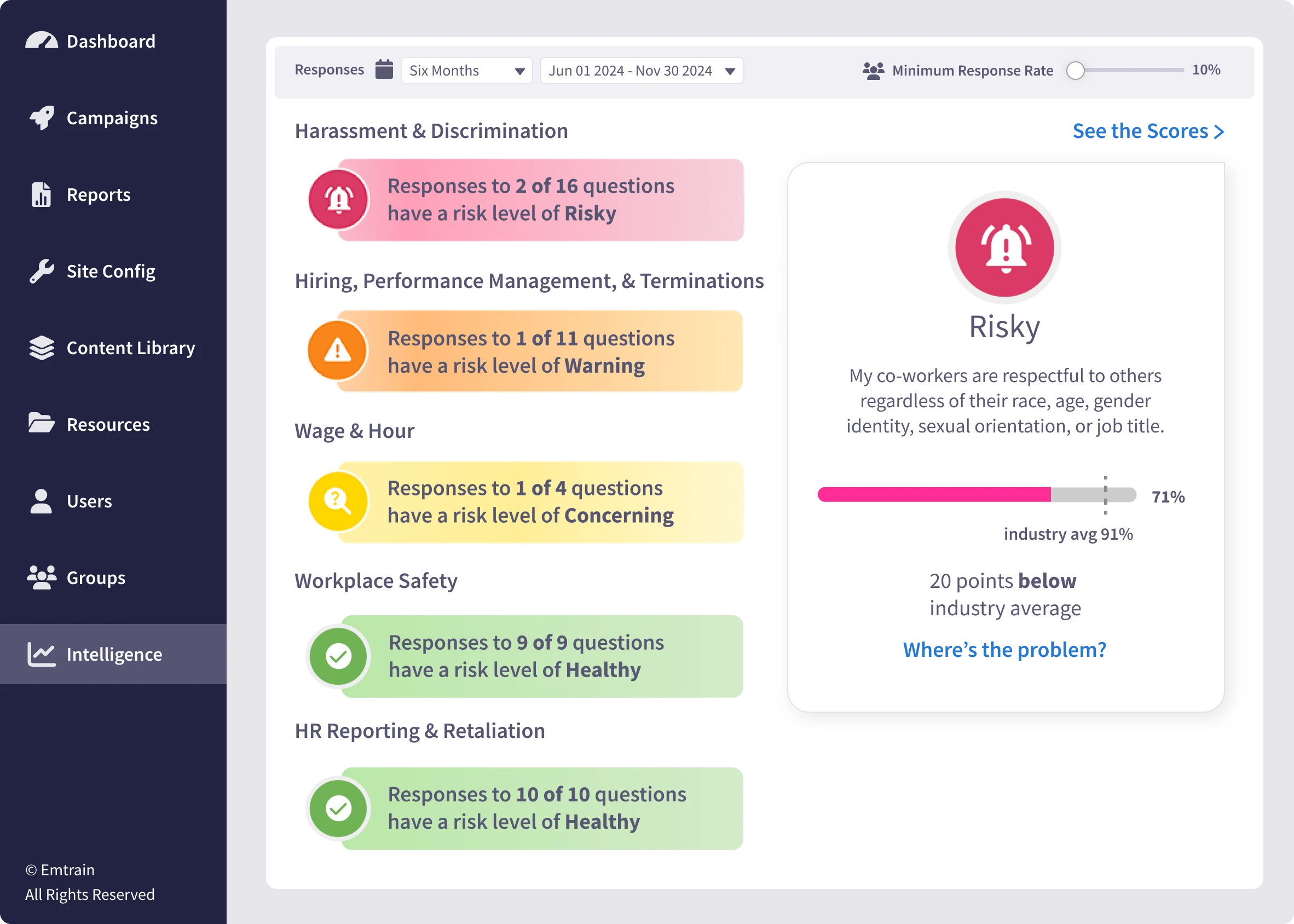Home » Concepts » Manager Basics » Annual reviews
An annual review is a formal evaluation process in which managers assess an employee’s performance over the past year. Traditionally, this meeting focuses on achievements, challenges, and goals for the upcoming period. However, modern organizations are reimagining annual reviews as part of a continuous performance management strategy—an ongoing dialogue about growth, alignment, and inclusion rather than a once-a-year critique.
Emtrain’s harassment training course is engaging, interactive, and designed to spot and reduce EEO risk.

The concept of performance reviews originated in the early 20th century as a way to measure worker efficiency. By the 1950s, annual performance appraisals had become standard practice in corporate America. While once viewed as essential, they gradually earned a reputation for being outdated, biased, and anxiety-inducing. According to research by the Society for Human Resource Management (SHRM), 95% of managers are dissatisfied with traditional review systems. Today, progressive organizations are adopting more agile, data-driven approaches—supported by tools like Emtrain’s Performance Management Training Course—to build equitable, motivating evaluation frameworks that strengthen engagement and retention.
Performance reviews are an opportunity to strengthen relationships between managers and employees—but only when handled with fairness, empathy, and clear communication. Unfortunately, many review processes fall short of their intent, creating frustration and disengagement. The following examples show how bias, inconsistency, and lack of preparation can undermine even the most well-meaning review systems.
HR and People Leaders can shift from one-off evaluations to continuous development conversations that empower employees and protect organizational culture. Emtrain’s Guide to Performance Management offers step-by-step methods for conducting fair, constructive evaluations that drive engagement. Combine this with inclusive communication strategies from Manage Talent Inclusively by Interrupting Bias to create a more equitable review process.
Effective performance management is a shared responsibility across HR, compliance, and leadership. By creating a consistent, transparent process, organizations can build cultures of accountability and trust. The following practices ensure that reviews empower employees and align with business goals.
When designed well, annual reviews become a cornerstone of organizational health. They align teams, reinforce accountability, and strengthen culture. By transforming evaluations into continuous learning opportunities, HR managers and people leaders can cultivate trust, engagement, and compliance. Emtrain’s training solutions give organizations the insights and skills needed to make every review fair, inclusive, and impactful.
In this short video, an HR leader meets with two managers to discuss their recent team performance reviews. One manager is overly generous, handing out high ratings without discernment—“You hand out performance reviews like they’re candy.” The other rushes through reviews without providing actionable feedback. The HR leader reminds them that employees deserve fair and consistent evaluations, explaining that performance reviews are not just checkboxes—they’re essential moments of growth, recognition, and direction. The scene underscores Emtrain’s message: feedback must be thoughtful, specific, and tied to development for teams to truly thrive.